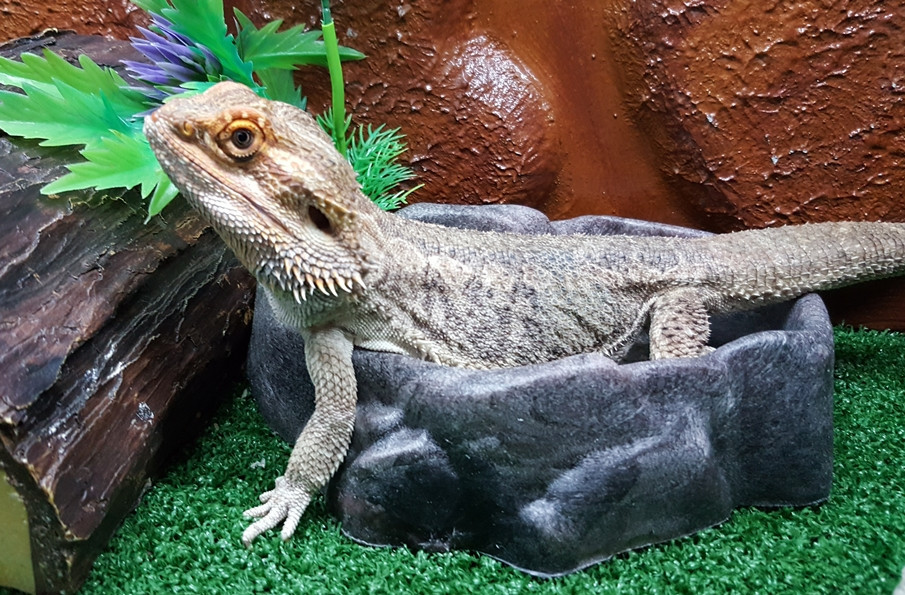My Bearded Dragon is Too skinny, Dehydrated, and has not eaten much Lately, What should I Do?
Similar to us, or quite frankly, any other living being, bearded dragons that are skinny, malnourished, and have not been on good or simply not fed, should not be given big meals, or insects at all. Yes, our first thought when an animal lacks fat and is malnourished, is to feed them as much as possible and fatten them up, but it is the worst thing you can possibly do, as these actions can cause liver or kidney failure within days. Their bodies are one, not used to any foods, much less rich foods like insects and such, but second, and most important of all, their bodies have started to shut down, to preserve the little they do have, so suddenly filling it with all kinds of food, will overwhelm their liver, and sometimes even the kidneys, damaging the organs and possibly leading to death.
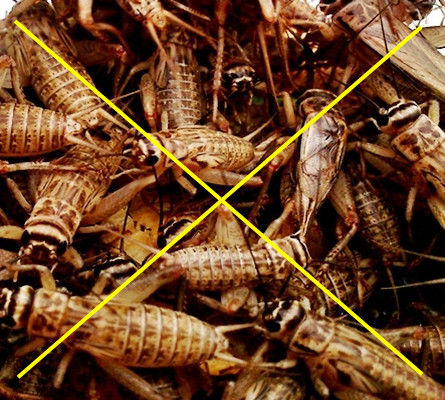
When treating a skinny bearded dragon, you will need to start by feeding them soft foods, such as baby food, and so forth, giving it to them every few hours, to ensure they get lots of nutrition, but not all at once. In the beginning, you will need to start, with smaller doses, a few ml (cc’s) every few hours, slowly increasing the dosage over a couple of days. After about 6 days to a week or so, you will then need to slowly start introducing non-rich insects, such as gut-loaded crickets, dubias, or even Turk roaches. You start with a few a day, then gradually increase the number of insects while decreasing the soft food intake until they have eventually completely transferred. Keep increasing the insect intake, but feed less regularly in a day, until they are eating full meals once a day. Once you reach this stage, you can start introducing other foods, such as silkworms, veggies, and so forth.
Very Important: The bearded dragon, will need to have a heat source throughout the day, and bask almost the entire day, as they will need the heat to not only get healthier, but to digest the food given, and to kick start the entire digestive system, to work normally once more. A Constant source of water is also very important, but do not give too much, as this can lead to diarrhea, which will only cause the bearded dragon to dehydrate, and his/her health to deteriorate further.
Force-feeding solid foods and insects is stressful, even for a healthy beardie, so doing it to a sick one will stress it out too much and might cause more harm than good. When feeding soft foods, drip it on their lips/noses, and they will start licking, allowing you to further feed the dragon. Make sure no liquid or food, enters the nostrils, as this can cause blockages or even an RI.
How Will I Know if My Dragon is Starved or Malnourished?
- Sunken fat pads
- Sunken eyes (not always the case)
- Too skinny, ribs showing
- Very loose skin even after being hydrated
- No energy
- Watery poop
- Brown/yellowish urinate
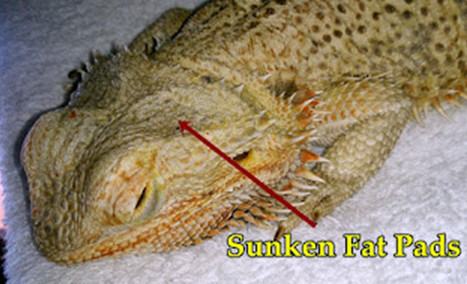
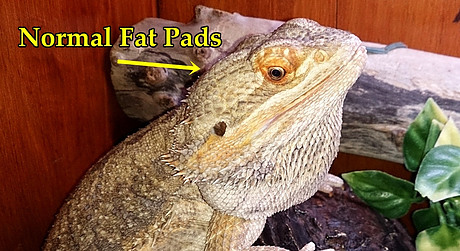
What Should I Give My Bearded Dragon to Eat?
Offer a nutritional slurry orally via a baby spoon or syringe. Organic baby food makes a great base for a slurry and both calcium and vitamins can be added to it. (Do not add protein to a slurry in the beginning)
ONLY use baby foods like Purity and ones without flavorings and add inns (butternut and sweet potato baby food is the purest and best to use). All foods should be plain and natural.
There are formulas on the market, made especially for bearded dragons that need a special diet to recover from starvation or any type of serious illness. Critical care is an example of such a product and works very well since it contains all the vitamins and nutrients to get them healthy. Critical care should be given 3 times a day for 3 days and then 5 times a day for at least a week, as mentioned above. Other products include Repashy’s food replacements.
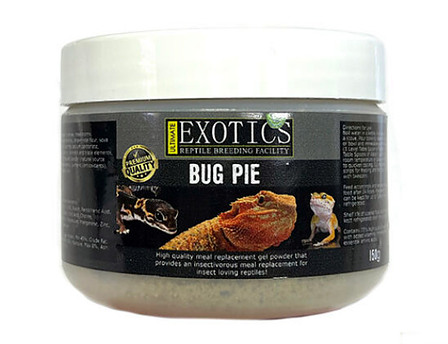
Once a bearded dragon’s digestive system starts working again, mainly the liver and kidneys, the urine will turn soft and white once more, and the excrement will turn solid, but not hard. This is a sign that your beardie is well off to recovery and that you can start the process of introducing staples, greens, and vegetables to their diet.
Once a beardie is on protein again, urinates should be monitored every day. If it changes color to brown or yellow, the protein should be taken away.
A dragon that was starved or not eating well should also be kept hydrated at all times. A bath twice a day will do wonders and water can also be dripped on the nose, they will usually lap it up.
Be sure to keep the Enclosure at the required temperature to help him/her digest the food. Food that digests properly will help with kidney and liver function as well. Night-time temps should not be dropped too much like with a normal healthy dragon. The enclosure should be heated with a heat emitter or heat source that does not use a bright light.
Veterinary care should be an option if your dragon suffers from malnutrition or starvation. A vet will weigh the bearded dragon, listen to its heartbeat, and give more accurate advice on how to care for him/her.
